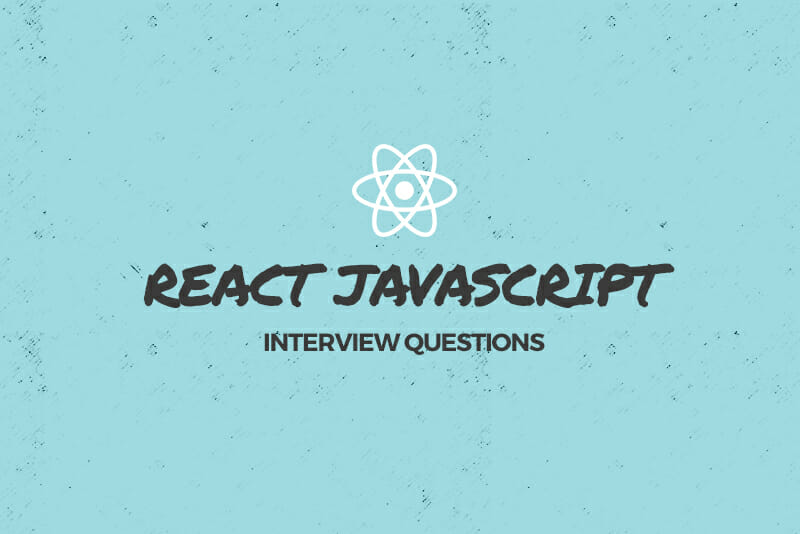Home » Tech Jobs Database » Application Developer
Application Developer
Also goes by: Computer Programmer, Systems Analyst, Software Engineer, Software Developer, Web Developer,
What Is a Application Developer?
Application developer is a general name for developers who create applications, often for specific platforms (like Windows or Mac) or specific types of applications (like mobile apps or desktop apps).
How much will I make?
Salaries can range by location and years of experience, but these are averages for the US.
$93,324.00
according to Salary.com
Will I get a job?
Projected job growth is 22% for the period 2020-2030 in the US, according to the U.S. Bureau of Labor Statistics.
64,957
Total Openings
according to comptia.org
Who will I work for?
- Tech Companies (All major ones, small and large)
- Software Companies
- Banks and Financial Institutions
- Healthcare Companies
- Retail Companies
Application Developer’s Daily Activities
No Application Developer works alone! Application Developers spend their days collaborating with designers, other developers, and product or project managers to bring applications to life. Below you will get a sense for what a day-in-the-life of a Application Developer could be:
Collaborate With Your Team Members to Build applications
Application Developers work hand-in-hand with their team members to create applications. In order to do this, you’ll need to have an understanding of a wide variety of skills including Java, .NET, Python. Collaboration can take many forms, including planning and strategy meetings, design brainstorms, reviews, and pairing.
Code Your application
Much of a Application Developer’s day is spent coding. In practice this means having a development environment set up on one’s computer that allows you to track your progress as you go.
Test Your application
One of the joys of working as a Application Developer is that applications are ALWAYS breaking! As a Application Developer one of your core duties is testing your applications for bugs and errors and working to fix them
Application Developer
It’s absolutely possible to become a Application Developer even if you have no prior experience in tech and no degree. In fact, a career as a Application Developer is one of the best entry level jobs in tech. Read on to learn how to do it!
Learn The Required Skills
First things first, in order to become a Application Developer you have to learn the required tech skills!
Java
Java is a static “object-oriented” programming language that works on multiple platforms.
Read More.NET
NET is an open source software framework developed by Microsoft. .NET is used to develop a wide variety of applications, including web applications, desktop applications, and mobile applications.
Python
Python is a general-purpose coding language—which means it can be used for other types of programming and software development besides web development.
Read MoreDatabase management
Database management is the process of creating, maintaining, and using databases. Database management involves tasks such as creating database schemas, loading data into databases, and querying databases. Database management is a critical skill for anyone who works with databases.
SQL
SQL stands for “Structured Query Language” and it is a programming language used to manage data in relational database management systems, creating data structures, and accessing data in web development.
Read MoreNoSQL databases
NoSQL databases are non-relational databases that provide flexible data models, suitable for handling large volumes of unstructured or semi-structured data, offering advantages in certain use cases over traditional relational databases.
Git
Git is a distributed version control system that tracks changes in source code during software development, facilitating collaboration among developers and enabling code management across different versions.
Read MoreApplication frameworks
Application frameworks are software libraries that provide a foundation for developing applications. Application frameworks make it easier to develop applications by providing pre-written code and common functionality. Popular frameworks include Flash, Django, Ruby on Rails, Laravel, Angular, and Vue.
Read MoreAgile Methodology
Agile is a software development approach that emphasizes iterative and incremental development, focusing on collaboration, flexibility, and delivering
Read MoreDebugging
Debugging is the process of finding and fixing errors in code. Debugging is a critical skill for anyone who works with code.
Testing and QA
Testing involves systematically verifying and validating software to identify defects and ensure it meets requirements. QA focuses on preventing defects and maintaining high standards. Together, they ensure reliable, user-friendly, and bug-free software products.
Cloud Platforms
Cloud platforms refer to online services that provide scalable computing resources, storage, and services over the internet, enabling organizations to deploy, manage, and run applications without the need for on-premises infrastructure. The most commonly used cloud platforms are Amazon Web Services (AWS), Google Cloud, and Microsoft Azure.
Application frameworks
Application frameworks are software libraries that provide a foundation for developing applications. Application frameworks make it easier to develop applications by providing pre-written code and common functionality. Popular frameworks include Flash, Django, Ruby on Rails, Laravel, Angular, and Vue.
Read MoreUser Experience Design
UX design is a user-centric approach that design teams take to account for the user’s experience, with the goal of creating accessible and usable applications that do not neglect functionality for design.
Read MoreHTML
HTML (HyperText Markup Language) is a coding language used to define parts of web pages or mobile apps to the web browsers that visit them, for example HTML tells browsers which part of a webpage is a header, which is a footer, where paragraphs belong, where images, graphics, and videos are placed, etc.
Read MoreCSS
CSS stands for Cascading Style Sheets with an emphasis placed on “Style.” CSS specifies your document’s style — page layouts, colors, and fonts
Read MoreJavaScript
JavaScript is a scripting language used to create and control dynamic website content, i.e. anything that moves, refreshes, or otherwise changes on your screen without requiring you to manually reload a web page.
Read MoreUser Interface Design
UI stands for user interface, and user interface design is the field that involves planning, creating, and improving this aspect of websites and applications.
Read MoreCode Efficiency
Code efficiency is the ability to write code that is both fast and reliable. Code efficiency is important for a number of reasons, including performance, cost, and scalability.
Build A Portfolio
The best way to demonstrate that you have the necessary skills—especially when you have no prior experience—is with a portfolio of professional quality coding samples.
Check out these blog posts for more:
Apply For Tech Jobs
Once you’ve learned all the required technical skills and built a killer portfolio, it’s time to dust off that old resume and LinkedIn profile and hit the pavement, or Internet superhighway as it were, in search of your first job as a Front End Developer!
➡️ Prepare Your Resume, LinkedIn, and Portfolio
Although your most valuable asset as you job search is your portfolio, you do have to cross your t’s and dot your i’s and when it comes to the job search that means optimizing your resume and LinkedIn profile. Tech employers expect you to have all three!
Check out these blog posts for more:
➡️ Build Your Network
Your net worth is in your network, which can be hard when you’re changing careers! But don’t worry, the tech industry is incredibly welcoming to newcomers. Whether you prefer in-person meetups, Slack channels, coffee-over-zoom chats, conferences, hack-a-thons or a little bit of everything, there are tons of opportunities for you to meet fellow techies.
Check out these blog posts for more:
➡️ Find Good Jobs To Apply For
A good job can be hard to find—or is it? The good news about tech is that there are so many openings at so many diverse companies that your biggest challenge will most likely be keeping up with all the opportunities!
Check out these blog posts for more:
➡️ Practice Interviewing
Whether you’re a season pro, or brand new to the tech industry: interviewing for a new job is tough! Add to that technical interviews…and you’ve got a recipe for heartburn, practically guaranteed. Luckily there’s an antacid on the market that works every time: practice. Read on for expert guidance on how to prepare for your next tech job interview.
Check out these blog posts for more:
➡️ Prepare for Technical Tests
Ah the dreaded technical test! Technical tests can come in many different forms: whiteboard tests, pair programming tests, take-home tests, algorithmic tests…just to name a few. Luckily, getting good at technical tests is a skill, just like anything else, and it’s one you can absolutely practice ahead of time.
Check out these blog posts for more:
You Might Also Be Interested In Learning About:
Front End Development
Front end development is a subset of software development that uses the coding languages HTML, CSS, and JavaScript to build websites for the internet!
Learn MoreFull Stack Development
Full stack web developers are programmers with a full complement of front end and back end skills. That means, along with knowing how to write backend languanges such as Python, SQL and PHP, a full stack developer is equally at home building front end code with HTML, CSS, and JavaScript.
Learn More
Want more options?
Explore More than 57 tech job Profiles available On the Skillcrush Database
explore the databaseFAQ
-
What does a Application Developer do?
Application developer is a general name for developers who create applications, often for specific platforms (like Windows or Mac) or specific types of applications (like mobile apps or desktop apps). You will find Application Developer working at a number of different types of companies including Tech Companies (All major ones, small and large), Software Companies, Banks and Financial Institutions, Healthcare Companies, Retail Companies.
-
How much do Application Developers make?
Although salaries can range by location and years of experience, the average salary for Application Developer in the US is $93,324.00 according to Salary.com.
-
Is a Application Developer the same as a Computer Programmer?
Yes, Application Developers are sometimes also referred to as Computer Programmer. Other common names for Application Developer include: Systems Analyst, Software Engineer, Software Developer, Web Developer.
-
Are Application Developer in demand?
Yes, Application Developer is in high demand: there are currently 64,957 jobs open. And the number of jobs is expected to grow substantially over the next 10 years. Projected job growth is 22% for the period 2020-2030 in the US, according to the U.S. Bureau of Labor Statistics.
-
Is a Application Developer a good job?
Yes, with an average salary of $93,324.00 according to Salary.com, and 64,957 current job openings, Application Developer is considered a great job.
-
What skills does a Application Developer need?
In order to work as a Application Developer you will need to know a number of different technical skills including AI, .NET, Algorithms, 3D modeling tools, .NET.
-
Is it too late to become a Application Developer at 35?
Absolutely not! You can become a Application Developer at any age. And since so many jobs in tech, like Application Developer, are relatively new, if no one over 35 could become one, there would be even MORE job openings than the 64,957 open Application Developer roles that there are!


















